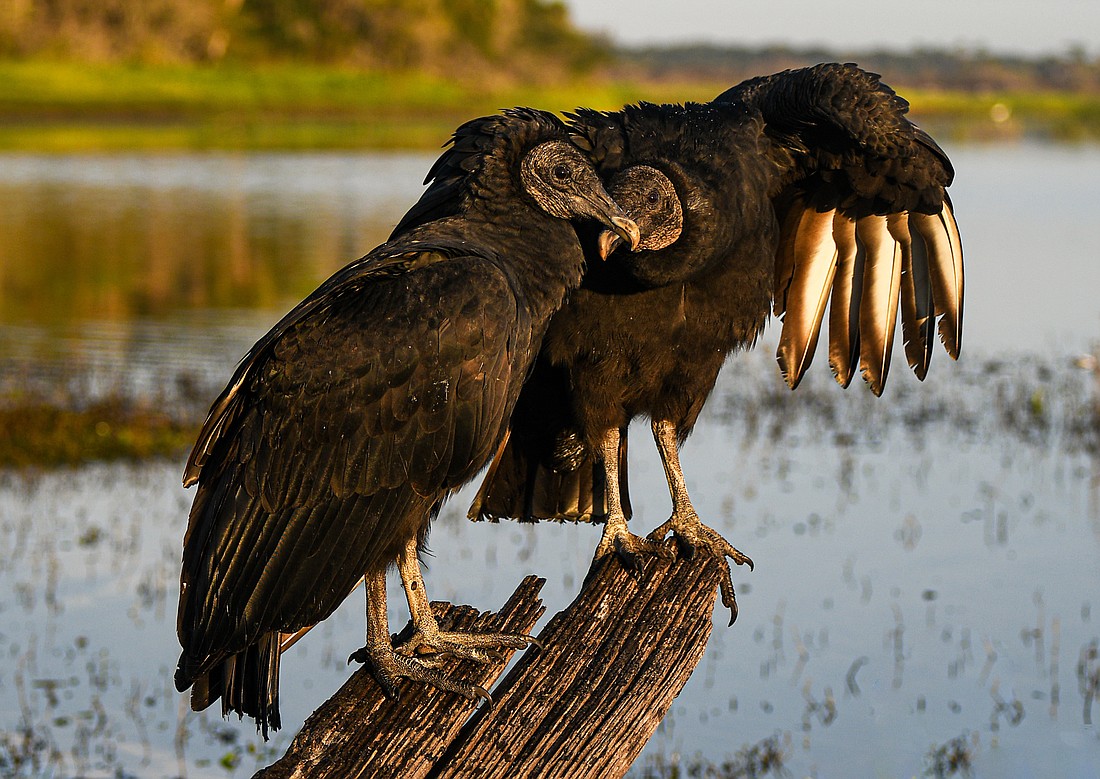- May 16, 2025
-
-
Loading

Loading

Glossy black, except for a splash of white on the underside of their wingtips, they gracefully soar the thermals above. But with their odd looks, quirky habits and association with death, black vultures are often maligned. As these highly sociable birds congregate in large numbers, have wrinkled featherless heads (which keeps them cleaner when feeding), vomit defensively and excrete down their feet to cool down. And, they have an affinity for rubber.
But by providing cleanup and sanitation services, black vultures, which are intelligent, monogamous, family-oriented birds, serve a critical ecological role. Feeding on animal carcasses, they quickly remove them from our environment. Moreover, pathogens found in decaying flesh, such as botulism and rabies, that could otherwise spread disease, are neutralized by strong acids in black vultures' digestive system.
As they can live off food we inadvertently supply, such as waste in garbage dumps and roadkill, black vultures have adapted to living alongside humans. Though their populations plummeted in the past, because of aggressive hunting by ranchers and farmers in the early 20th century and pesticide contamination, they recovered, thanks to protection by the Migratory Bird Treaty Act and the banning of DDT.
Continued habitat loss is bringing black vultures into closer contact, and thus potentially conflict, with humans. And contamination of carrion with toxins, especially lead-shot, remains a concern. Finally, as black vultures often feed on animals killed by vehicles, they congregate alongside roadways, where they can be hit by traffic. We can help protect Mother Nature's cleanup crew by slowing down when driving near roadside birds and keeping hazardous chemicals such as lead, pesticides and herbicides, out of our shared environment.
Save our Seabirds is a non-profit organization whose mission is to rescue, rehabilitate, and
release sick and injured wild birds. Follow @SaveOurSeabirds to learn more about our birds.